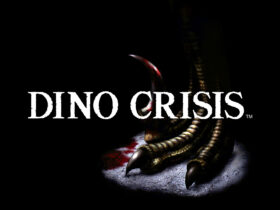Gaming is big business, one only has to look at how much money the Saudi Arabia-backed investors were willing to part with in order to purchase EA.
Yet at the same time, games capable of being genuine works of art are more abundant than ever. Titles such as Breath of the Wild truly capture the sense of wonder that comes with exploring natural landscapes, and Disco Elysium’s writing has helped people feel understood by showcasing that their self-criticism might not be so unique after all.
These are powerful emotions, and it makes sense that people would want to talk about that. In this day and age, the internet, and more specifically social media, provides the perfect outlet. Forums like Reddit mean everyone can discuss a new trailer or developer statement, and video essays on YouTube can cover a game in such depth that the video end up being longer than the game it’s critiquing.
On the one hand, this creates a sense of appreciation for elements of game design that might go unrecognised, but also creates an environment where the minutiae of a game is analysed and scrutinised in microscopic detail, perhaps unfairly.
Best Gaming Sequels Create Excruciating Anticipation
Hollow Knight: Silksong was perhaps, in the run up to its release, one of the most hotly anticipated games of all time. That of course was backed up by 3.2 million sales within its first two weeks. Every gaming event between its announcement and its release was flooded by eager fans demanding an update, even in early development when such an expectation is entirely unrealistic.
This is already a scenario that’s bound to create lofty expectations that would be difficult for any game to meet, but when the game released, it did so to critical acclaim.
Audiences praised the art style, animations, worldbuilding and exploration, and on PC (the platform with the most reviews) it settled on a very impressive 91 on the review aggregate site Metacritic.
However, since release, the predominant topic surrounding it is just how difficult Silksong is. That’s not to say that it isn’t a conversation worth having, but despite the fact that there are so many elements that everyone agrees the game excels in, the difficulty is always front-and-centre of the discussion.
Part of this is because it makes for a more interesting narrative; whether an article or a comment on Reddit – “I was so excited for this game but I was disappointed” – is arguably a better hook than an uncomplicated “I was excited and I love this game.”
Popular consensus is disappearing into a sea of comments and likes. It’s slowly becoming less about an opinion being the most interesting or correct, and about getting as much engagement as possible.
In other words, there is room for an argument. Space where because one popular opinion around the game is “this is a game of the year contender that everyone knew would be great”, it appeals to fly against the grain. This ends up being more interesting to a lot of people than actually just playing the game and finding out for themselves.
Original Games
The sheer amount of interest around Silksong means that there are a lot of people who are willing to engage with these opinions online, making them worth having if you’re someone who loves online discourse.
However, even smaller levels of anticipation can be damaging in some ways. Obsidian’s Avowed was a game that people were looking forward to for a long time, since it was announced as “Obsidian’s take on Skyrim” before shifting gears.
All of this hype seemed to evaporate when Avowed released and it was simply a fun game. It scored a positive 80 on Metacritic and was an engaging first-person RPG with strong combat that leant on a lot of Obsidian’s strengths, but because it wasn’t a game that was an absolute game changer like Elden Ring, it faded in discussions ever since.
Judging something by a Metacritic score alone ignores a subjective element of what makes a game fun, and creates a narrow margin for what makes a game worth playing.
Most Successful Games on Release
Hollow Knight, Silksong’s predecessor, is something of a cult classic. In many ways, it came out of nowhere and completely redefined the genre, becoming one of the best Metroidvania games of all time. While it’s not a genre that was completely dead or dormant before that, Hollow Knight arguably created a new wave of interest, and is frequently cited by many games that have clearly been inspired by it – like Nine Sols.
Hollow Knight is not as hard as Silksong but it gets pretty close towards the end of the game, and yet most of the discussion around the game has remained focused on this sense of freshness.
Another critically acclaimed game from 2025 – Clair Obscur: Expedition 33 – has been called an early contender for game of the year, and on PS5 it has 93 on Metacritic, a score that ultimately isn’t too different.
Yet because of the lack of expectations that audiences on the whole had for this game beforehand, because it took them by surprise, the focus of this discussion is on how well everything comes together in spite of minor flaws. This isn’t to say that one game deserves praise and the other criticism, just that in there already being so much discussion for a game in the run-up to release (as with Silksong), there energy ready to evolve into something else once strong opinions form.
Do Metacritic Scores Matter?
The problem with such a discourse-heavy environment is that people feel a need to justify why they enjoy something – a that’s when players lean on Metacritic scores to state why one game is empirically superior to another.
In reality, the scores don’t mean anything objective, it just signals how much the critics being counted enjoyed their time with the game. If you have never heard of a game before, play it, discover you enjoy it, spend 40 hours in it without ever feeling a dip in that enjoyment, then finish it only to discover that it has a 73 on Metacritic, does that invalidate your time with it?
Sports is enduring a similar fate. Every minute detail like a transfer or rumour is given attention online, creating such a contentious environment that the simple component of watching a match, enjoying yourself and going home feels not only quaint but downright alien.
Of course, this isn’t a problem that’s isolated to forms of entertainment. Incredibly argumentative, binary and cynical online discussion is a foundation of the modern political landscape, but as much as people might be aware that this is damaging for our ability to communicate healthily with one another, they might not apply that same awareness to how it can infringe on personal hobbies as well.
It’s sometimes necessary to make room for something that’s just for you, whether that’s gardening or getting immersed in a game that you like the look of.
Games are art, but a strong component of art is ineffable – how it resonates with you personally, and that’s not something that can necessarily be quantified or put into words, nor does it need to be.






